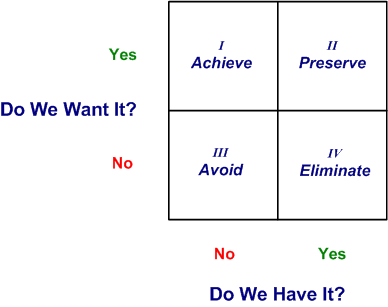In the early nineties, Prof. John Kotter conducted a research on what he, at the time, called “unadaptive organisations”.
The business school case of that time was Rank Xeroz who invented the photocopier, created a highly successful business with a dominant market share, only one day to wake up and find that the Japanese had eaten their lunch.
Kotter pointed out that there seemed to be a pattern in these cases of dominant companies that were suddenly seriously disrupted. (More recent cases of this kind of disruption are KODAK and Nokia; same story and LEGO was within inches of falling of the same cliff a few years back. “We had become arrogant—we didn’t listen to customers anymore,” says Mr Knudstorp.)
A great strategy/product leads to exceptional success.
But success sometimes has some unpleasant side effects.
It starts out with focus, that leads to tighter control, that leads to rigid procedures and rules and eventually just before it’s lights out, to arrogance. The arrogance means there is no room for new input from any of the stakeholders involved – The internal logic is we are successful and therefore we know best – don’t mess with it.
The reason this rigid focus does not work is because it presupposes that the world we live in is also stable or even stagnant – but when everything else around us evolves at an ever increasing speed, we need to evolve with it – that means changing and adapting the whole time.
So how do we mitigate arrogance?
The buzz word seems to be agility – But how does one become agile? We install a culture of continuous learning.
If we are always learning – we are in questioning the status quo – it’s what Peter Senge calls open mind. We are asking questions of ourselves and our surroundings continuously; questions that stem from genuine curiosity. Curiosity about what is going on, what others are thinking and feeling. If we then also take the time to reflect on the answers we are getting, pure magic happens.
You see, it is a bit of a myth that we learn from our experiences. If we always did, we would never make the same mistake twice, would we? So we only learn from our experiences when we take the time to think about them – when we pause for a moment of reflection.
So we need to develop the habit of reflection as the natural part of ending a meeting, ending the day, ending a project.
My favourite way of doing that – which is super fast, is to use the goals grid developed by Fred Nicols – you will find it here.
We ask ourselves two questions: do we have it and do we want it? Then we get four sections: Preserve, Achieve/develop, Eliminate and Avoid. I often do this on a napkin.

“So how did the day go? what would we like to continue doing, do better tomorrow, eliminate or avoid in the future?”
“Thank you all for attending this meeting. Let’s just recap what did we learn today?”
Try for yourself – even on your own. At the end of the day, ask yourself: What did I learn today?
